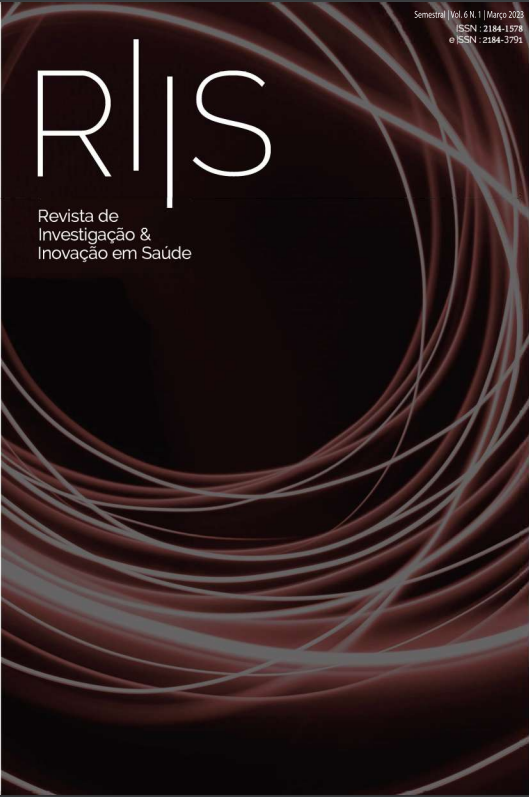Contributions in the assessment of the degree of satisfaction of the person in palliative care
DOI:
https://doi.org/10.37914/riis.v6i1.225Keywords:
Palliative Care, Health Care Quality Indicators, Patient SatisfactionAbstract
Background: the degree of satisfaction is an important indicator of the evaluation of the quality of palliative care. Satisfaction, being a complex concept, defines the different reactions that patients and families have, with regard to the experience of palliative care. Knowledge of the degree of family satisfaction is a benchmarking factor regarding the planning, implementation and monitoring of care. Objective: to assess the degree of satisfaction of relatives of patients in the palliative care unit. Methodology: in 2020, a project for continuous quality improvement was elaborated through the qualitative, exploratory study through a telephone survey with the relatives of patients hospitalized in the palliative care unit using dimensions presented on a likert scale. Results: from the data analysis it was found that 95% of the reference family members characterize the work of the team as excellent and 4.69% as very good. Respondents considered themselves very satisfied 7.81% and with the result of 92.19% they felt totally satisfied. Conclusion: palliative care promotes the satisfaction of the needs of the end-of-life person. The promotion of dignity and respect for human life is the result of constant reflection in providing excellent care taking into account the assessment of the degree of satisfaction.
References
Almeida, A. (2014) Avaliação da satisfação dos familiares dos doentes em CP: contributo para a validação da FAMCARE. Cuidados Paliativos. 1(1), 122-131)
Areia, P., Major, S., & Relvas, A. (2017). Necessidades dos familiares de doentes terminais em cuidados paliativos: Revisão crítica da literatura. Psychologica, 60(1), 137-152. https://doi.org/10.14195/1647-8606_60-1_8 DOI: https://doi.org/10.14195/1647-8606_60-1_8
Baquet-Simpson, A., Spettell, C., Freeman, A., Bates, A., Paz, H., Mirsky, R., Knecht, D., & Brennan, T. (2019). Aetna's Compassionate Care Program: Sustained Value for Our Members with Advanced Illness. Journal of Palliative Medicine, 22 (11). https://doi.org/10.1089/jpm.2018.0359 DOI: https://doi.org/10.1089/jpm.2018.0359
Barbosa, A. & Neto, I. (2016). Manual de Cuidados Paliativos. (3ª ed) Faculdade de Medicina da Universidade de Lisboa
Bardin, L. (2011). Análise de Conteúdo. (4ª ed.) Edições 70.
Calado, M. (2014) A autonomia do doente em fim de vida e a satisfação com a informação. (Dissertação de Mestrado) em Cuidados Paliativos. Universidade Católica Portuguesa. https://repositorio.ucp.pt/bitstream/10400.14/15297/1/Tese%20Marta%20Calado%20n%C2%BA192410022.pdf
Capelas, M. (2014) Indicadores de Qualidade para os Serviços de Cuidados Paliativos. Universidade Católica Editora Capelas, M., Simões, A., Teves, C., Durão, S., Coelho, S., Silva, S., …; Afonso, T. (2018). Indicadores de qualidade prioritários para os serviços de cuidados paliativos em Portugal. Cadernos de Saúde. 10(2), 11-24 https://doi.org/10.34632/cadernosdesaude.2018.7245
DenHerder, M., Hasselaar, J., Payne, S., Varey, S., Schwabe, S., Radbruch, L…, Groot, M. (2017). How continuity is experienced within the context of integrated palliative care: a qualitative study with patients and family caregivers in five European countries. Palliat Med, 31(10),946-955. https://doi.org/10.1177/0269216317697898 DOI: https://doi.org/10.1177/0269216317697898
Ferris, F. Gómez-Batiste, X., Fürst, C., &Connor, S. (2007). Implementing Quality Palliative Care. Journal of Pain and Symptom Management. 33(5), 533-541, ISSN 0885-3924, https://doi.org/10.1016/j.jpainsymman.2007.02.033 DOI: https://doi.org/10.1016/j.jpainsymman.2007.02.033
Fonseca N., Peres L., & Scalia, L. (2020). Avaliação da satisfação de pacientes e seus cuidadores em relação aos serviços de cuidados paliativos em oncologia. São Paulo: RevRecien, 10(31),74-86. DOI: https://doi.org/10.24276/rrecien2020.10.31.74-86 DOI: https://doi.org/10.24276/rrecien2020.10.31.83-95
Hasselaar, J. & Payne, S., (2016). Integrated palliative care. Nijmegan: Radboud
University Medical Centre.
Neto, I. (2022). Da Ciência, do Amor e do Valor da Vida: Relatos e Padrões da Identidade dos Cuidados Paliativos. Lisboa: Oficina do Livro.
OPCP. Observatório Português dos Cuidados Paliativos (2018) – Relatório de Outono de 2018. Secção Caracterização e Satisfação dos Cuidadores Informais. Universidade Católica: Instituto de Ciências da Saúde. https://www.apcp.com.pt/uploads/opcp_projeto_3_relatorio_2018_vf-1.pdf
Pinto, I., Novais, S., Carvalhais, M., Gomes, S., & Soares, C. (2022). Fatores que influenciam a satisfação com os cuidados paliativos: scoping review. Millenium, 2(17), 41-51. https://doi.org/10.29352/mill0217.25317
Radbruch, L., Lima, L., Knaul, F., Wenk, R., Ali, Z., Bhatnaghar, S., Blanchard, C., Bruera, E., Buitrago, R., Burla, C., Callaway, M., Munyoro, E., Centeno, C., Cleary, J., …, Pastrana, T. (2020). Redefining palliative care - A new consensus-based definition. J. Pain Symptom Manag.60, 754-764. https://doi.org/10.1016/j.jpainsymman.2020.04.027 DOI: https://doi.org/10.1016/j.jpainsymman.2020.04.027
Reigada, C., Hermida-Romero, S., Sandgren, A., Gómez, B., Olza, I., Navas, A., & Centeno, C. (2021). Interdisciplinary discussions on palliative care among university students in Spain: giving voice to the social debate. International journal of qualitative studies on health and well-being, 16(1), 1955441. https://doi.org/10.1080/17482631.2021.1955441 DOI: https://doi.org/10.1080/17482631.2021.1955441
Silva, M. (2014). Qualidade de Vida em Cuidados Paliativos: Análise comparativa da percepção dos doentes, cuidadores e profissionais. (Dissertação de Mestrado) Faculdade de Economia da Universidade de Coimbra.Mario_silva_Qualidade_vida_cuidados_paliativos.pdf (uc.pt)
Twycross, R. (2003) Cuidados Paliativos. (2ª ed). Climepsi Editores.
Vilelas, J. (2020). Investigação O Processo de Construção do Conhecimento. (2ª. ed.). Edições Sílabo.
Ordem dos Enfermeiros (2015). Padrões de Qualidade dos Cuidados de Enfermagem: guião para a organização de Programas de Melhoria Contínua da Qualidade dos Cuidados de Enfermagem. Funchal: Conselho de Enfermagem Regional – SRMOE. HospitalNelioMendonca_SistemaClassificacaoDoentes_Madeira.pdf (ordemenfermeiros.pt)
Downloads
Published
How to Cite
Issue
Section
License
Copyright (c) 2023 Sérgio Soares, Carla Pinho, Inês Costa

This work is licensed under a Creative Commons Attribution 4.0 International License.















